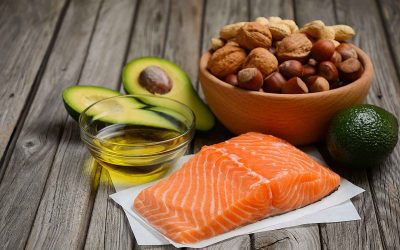The Good, The Bad and The Hungry Of Intermittent Fasting
Intermittent Fasting (IF) seems to have come to our attention lately as the Paleo crowd makes claim that ‘it’s only natural’ and that ‘hunter gatherers would go days without game’. It is an interesting concept – the idea that perhaps we don’t need 3 meals and 3 snacks a day to stay alive…
Fear is usually the immediate reaction to the word ‘fasting’. This is because the word directly implies deprivation and a lack of something that our society is so obsessed by: food.
In the following article I will not be making reference to what I consider ‘more extreme’ methods of fasting such as week or day long juice and water fasts but instead will refer to a more realistic strategy of Intermittent Fasting. This strategy of Intermittent Fasting (IF) is one that restricts your daily ‘eating window’ into an 8-hour period. For some this may simply look like skipping breakfast, for others it means a large breakfast and early dinner, and for the real die-hards it might even be a stand-alone evening feast.
These methods of intermittent fasting do have some scientific research to support it, however like most health trends there is an equivocal amount of research on the contrary. So here you are: the good, the bad and the expectedly hungry of intermittent fasting.
Pros of Intermittent Fasting
Weight Loss
After 8 hours of fasting the body will begin to tap into fat stores and burn excess fat. Therefore it is no surprise that intermittent fasting can accelerate the rate of fat loss in those seeking fast weight loss, and it may even be as easy as skipping dinner – I recommend always breaking your fast upon waking.
.
Reduced Calorie Intake
When we reduce the frequency of our meals it is likely that we will consume less calories overall as it would be proportionally difficult to consume 3 meals worth of food in 2 sittings (hopefully).
Cell Repair
Some researchers have hypothesized that fasting for longer than 8 hours or more can accelerate the repair of certain genes and tissues that the body would otherwise ignore during surplus. These repair processes are reported to have subsequent benefits for reducing blood pressure, oxidative damage to lipids, protein and DNA molecules and may improve adverse insulin sensitivity and glucose metabolism.
Improved Longevity
Subsequently these numbers of animal and human studies conducted over the past 15 years suggest that periodic fasting can improve longevity.
Individualized
There are a number of types of Intermittent Fasting, ranging from more restrictive week and day-long fasts to much more actionable strategies that may mean you simply skip a meal, or confine your meals into a certain 8 hour ‘eating window’ in the day.
Adaptability
Some researchers have hypothesized that fasting for longer than 8 hours or more can accelerate the repair of certain genes and tissues that the body would otherwise ignore during surplus. These repair processes are reported to have subsequent benefits for reducing blood pressure, oxidative damage to lipids, protein and DNA molecules and may improve adverse insulin sensitivity and glucose metabolism.
Cons of Intermittent Fasting
Hanger
Intermittent fasting can certainly leave people ‘hangry’, especially when they are not used to this way of eating or are adapting from a high-glucose metabolism that requires hourly ‘top ups’ of snacks.
Blood Sugar (especially diabetics)
People experiencing any type of blood sugar issues should consult with their health care provider before making any change to their health regime – especially when it concerns starving the body of carbohydrate. While many health professionals would advocate IF as a method of regulating blood sugar, I would suggest consulting your support team and doing so under close medical surveillance with a blood glucose monitor.
Binge Eating Behavior
Intermittent fasting may be dangerous for those who have had a disordered relationship with food in the past or may have binge-eating tendencies. Prolonged times of fasting may cause people to feel as though they have ‘earned’ a certain food that they would otherwise deem unhealthy and runs the risk of having people overeat and usually eat very quickly; overcome by sudden hunger.
Personally I would say that intermittent fasting is a practice well reserved for the certain type of person; a highly self-controlled and aware eater who is able to toe the line between bodily requirements and cravings. Unfortunately the large majority of us do not fit into this category.
In today’s society, and from what I see in my local community, we seem to do better with a frequent consumption of healthful wholefoods. When we can moderate our meals according to correct portion sizes and just eat real food, there really is no immediate need to fast. So why do it?
Sure you may test it out and feel amazing, and if so then please share your experiences with me via Facebook. For now, I’ll continue enjoying my morning bowl of Forage, my café bought lunch and lovingly prepared home cooked evening meal.

Related Podcast Episodes
Recent Articles
Why I Ripped up my Manuscript
As many of you may not have been aware I am writing book, or I was…until recently when I ripped up my manuscript. While this may seem like an impulsive and irrational move, I assure you this decision came after a great deal of reflection and contemplation. You...
School’s of Paleo Thought
Paleo, Primal, Ancestral Eating, AIP, Vegan, what the -? There is a multitude of diets and ways of eating out there but the ‘it’ diet of the moment is definitely Paleo. While the media has mutilated the Paleo framework to appear dangerous, experts in the field of...
Why Calories Don’t Matter
For years we have been told to avoid fat, especially saturated fat due to its high caloric density and that these calories will work against us if we are trying to loose weight. But what if I told you that this simply wasn’t true?



